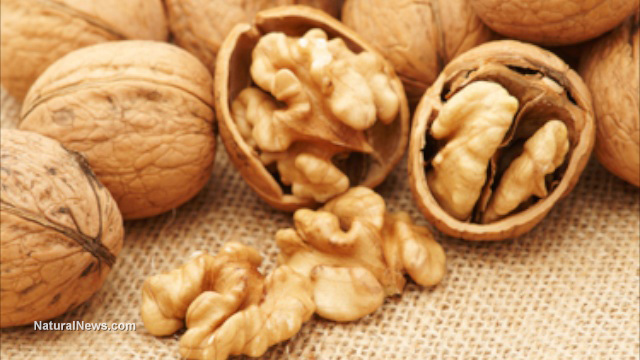
If you find walnuts tasty, you’re not alone. The bacteria in your gut do, too, according to new research. The study, published in the Journal of Nutrition, discussed the prebiotic nature of walnuts and how the nuts aid in keeping your stomach – and you – healthy.
The researchers found that incorporating walnuts into your diet can have a variety of positive effects on your body, including reduced inflammation and lower cholesterol levels. They also discovered that regular nut consumption can have an impact on your microbiome, the microorganisms living in your gut and that this effect could be one of the driving forces behind walnuts’ many health benefits.
In their study, the researchers divided 18 subjects – eight women and 10 men – into two groups. All participants submitted urine samples and had their body measurements, blood pressure, and fasting blood sugar taken.
They were then put on a carefully controlled base diet. One group supplemented their daily meals with 42 grams of walnut halves and pieces, while the other group did not. This continued for three weeks and was followed by a week-long wash-out period.
For another three weeks, the group that initially did not have walnuts ate nuts as part of their diet. The other group that originally had walnuts did not.
The participants’ fecal and blood samples were then compared. The researchers noted changes in the population of bacteria inside the participants’ stomach. The researchers recorded a 49 percent to 160 percent increase in the population of Faecalibacterium, Dialister, Clostridium, and Roseburia in the walnut group compared to the control group.
Mother Nature’s micronutrient secret: Organic Broccoli Sprout Capsules now available, delivering 280mg of high-density nutrition, including the extraordinary “sulforaphane” and “glucosinolate” nutrients found only in cruciferous healing foods. Every lot laboratory tested. See availability here.
The number of Ruminococus, Dorea, Oscillospira, and Bifidobacterium also decreased by 16 percent to 38 percent.
The researchers believe that walnuts’ nature as a prebiotic has something to do with these effects. A prebiotic is a substance that your body cannot digest but serves as food to the organisms inside your gut. Consuming prebiotics helps keep the population of beneficial bacteria high while limiting the numbers of harmful microorganisms that contribute to diseases.
A clinical study published in 2015 in the same journal revealed that walnuts provide less energy than previously thought. It was found that this is because the macronutrients in the nuts pass through the small intestine undigested and proceed to the large intestine where they become food for microbiota.
The changes in the microorganism numbers coincided with decreases in the participants’ LDL cholesterol and non-cholesterol sterol concentrations by seven percent and six percent, respectively.
“These results suggest that the gastrointestinal microbiota may contribute to the underlying mechanisms of the beneficial health effects of walnut consumption, including cardiometabolic and gastrointestinal health,” the researchers wrote.
The study was funded by the USDA Agricultural Research Service and the California Walnut Commission.
More reasons to snack on walnuts
You’ll find walnuts in a large variety of dishes and that’s a good thing. These nuts are packed with nutrients that are good for your body.
They contain high levels of vitamin E, which helps in maintaining optimal cellular health and is great for optimal skin and eye function. Walnuts are also rich in B-vitamins, particularly pyridoxine (B6), which helps prevent nerve damage, and folic acid (B9), which is vital to a healthy pregnancy.
Walnuts contain omega-3 fatty acids in abundance, which makes them good for your brain. In fact, there are indications that consuming walnuts may help in treating symptoms of Alzheimer’s disease and restoring memory.
Moreover, these nuts have plenty of antioxidants that offer a huge variety of benefits, ranging from improving your biological clock down to preventing serious medical conditions like cancer.
If you want more stories on natural remedies, follow Remedies today.
Sources include:
NutraIngredients-USA
Academic.OUP
NCBI.NLM.NIH.gov
